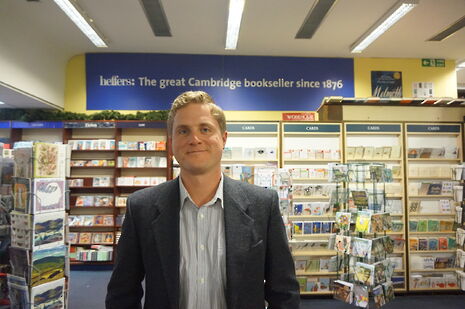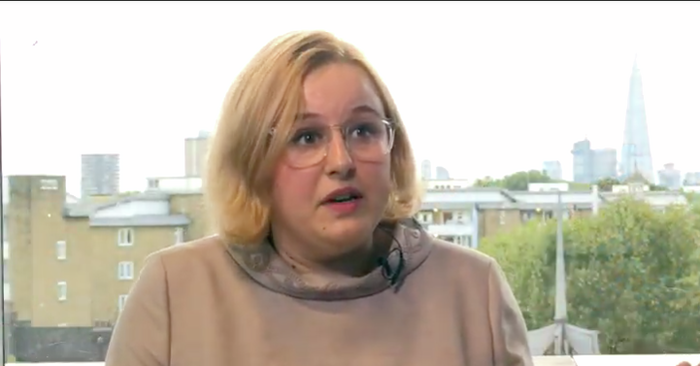Ben White: ‘Seeing 21st century colonialism firsthand made a big impression on me’
Journalist Ben White spoke to Belle George about how a trip to Palestine during his degree at Cambridge has defined his career

Speaking with Ben White I’m quickly aware this is a man who has devoted his career to what he calls “committed journalism” as opposed to “supposedly neutral journalism.” Looking me in the eye he says “there are many ways to achieve similar goals, but for me it became about wanting to tell the stories of Palestinians who I was meeting.”
I sat down with Ben after a talk in Heffers Bookstore where he was interviewed by Dr Priyamvada Gopal about his new book Cracks in the Wall: Beyond Apartheid in Palestine/Israel. Dr Gopal, who had been Ben’s supervisor while he studied English at Cambridge, told the audience “I found it [the book] a curiously hopeful experience.” Ben is thankful for her praise but realistic, responding “there are hopeful signs there, but the reality on the ground is terrible.”
Ben told me that he first became aware of the situation when the second intifada started in September 2000. He was seventeen when “it [the intifada] burst into the front pages.”
Ben explains how the news he was reading shocked him. “The first few months of the second intifada were primarily characterised by confrontations between Palestinian youth and Israeli shooters. The Israeli army mobilised a lot and I think that was what struck me, initially, was the asymmetry.”
“I couldn’t face a traditional route of writing about stuff I didn’t care about in order to be able to finally write about what I cared about”
This asymmetry Ben speaks of struck a chord with me. Last summer I travelled to Israel and Palestine thanks to a grant from my college. I stayed a few nights in Nablus with a Palestinian friend with whom I had been at school. She’s related to Faris Odeh, a boy who was photographed throwing a stone at an Israeli tank in Gaza in October 2000. The photograph became an iconic image of the Palestinian struggle when Faris died ten days later, shot in the neck by Israeli soldiers for again throwing stones. It’s a chilling image, and one which so clearly highlights the inequality of the weapons employed by the two sides during the intifada.
Arriving at Cambridge as an undergraduate, Ben’s awareness of the ongoing conflict meant he “wanted to be more involved in learning about Palestine and doing something about it.” He applied for a grant from his college and after his first year travelled to Bethlehem where he spent five weeks teaching English and living with a Palestinian family.
Speaking of how he felt before he went he tells me “I thought of that trip as being just something I was doing for one summer. I didn’t really think about it as a sort of ongoing engagement issue. I thought okay, I’m going to see a bit of what it’s like for myself, on the ground, and offer a small gesture of solidarity.”
But that summer was a catalyst for Ben, who says “the experience of seeing firsthand an occupation and 21st century colonialism made a big impression on me.” Prior to first visiting Palestine, Ben said his plan was to finish his degree at Cambridge, then continue on to journalism graduate school with the hope of working at a newspaper. Ben told me that, having witnessed first hand the everyday experiences of Palestinians in the West Bank, “when I came back to start second year I started shifting my general plan with respect to what kind of journalism I wanted to do. I realised that I couldn’t face a traditional route of writing about stuff I didn’t care about in order to be able to finally write about what I cared about.”
Returning to Cambridge for his second year Ben embarked on the path that has led him to where he is today. “I was doing stuff with The Cambridge Student, writing about Palestine sometimes, and that was my first experience of how some people think that’s great, and some other people think that’s…. less great. And I also got involved with the PalSoc.” He later went on to become the society’s President in his final year.
Ben says it was the experience of doing student journalism at the same time as Palestinian solidarity activism that has inspired the direction of his career ever since. Forgoing the traditional path of a budding journalist working his way up the office hierarchy to instead commit to a career of writing to reveal injustices is an admirable decision, and it appears a successful one for Ben. He has since published over 400 articles and four books specialising in the Israeli-Palestinian conflict. As Cracks in the Wall demonstrates, he continually has new insights and information to give. Speaking with Ben makes me grateful for journalists like him who refuse to let powerless people’s struggles be swept under the rug by those who wish to keep them silent.
 News / SU reluctantly registers controversial women’s soc18 December 2025
News / SU reluctantly registers controversial women’s soc18 December 2025 News / CUP announces funding scheme for under-represented academics19 December 2025
News / CUP announces funding scheme for under-represented academics19 December 2025 Features / Should I stay or should I go? Cambridge students and alumni reflect on how their memories stay with them15 December 2025
Features / Should I stay or should I go? Cambridge students and alumni reflect on how their memories stay with them15 December 2025 Fashion / The art of the formal outfit 18 December 2025
Fashion / The art of the formal outfit 18 December 2025 News / Dons warn PM about Vet School closure16 December 2025
News / Dons warn PM about Vet School closure16 December 2025










